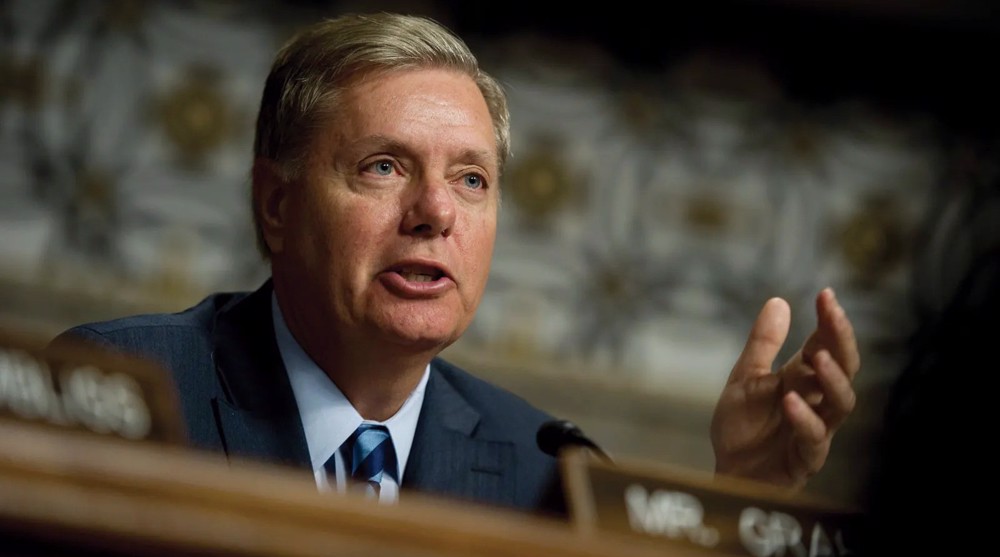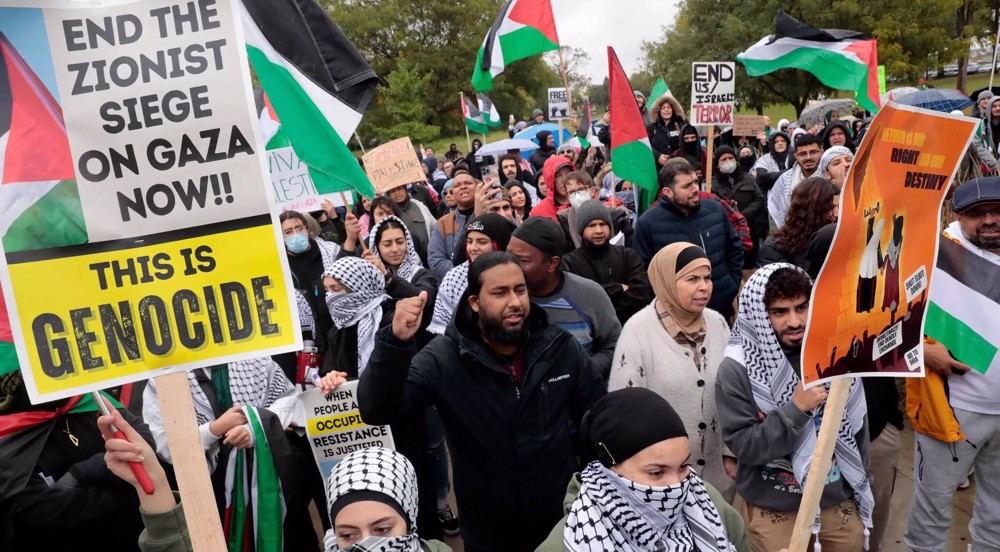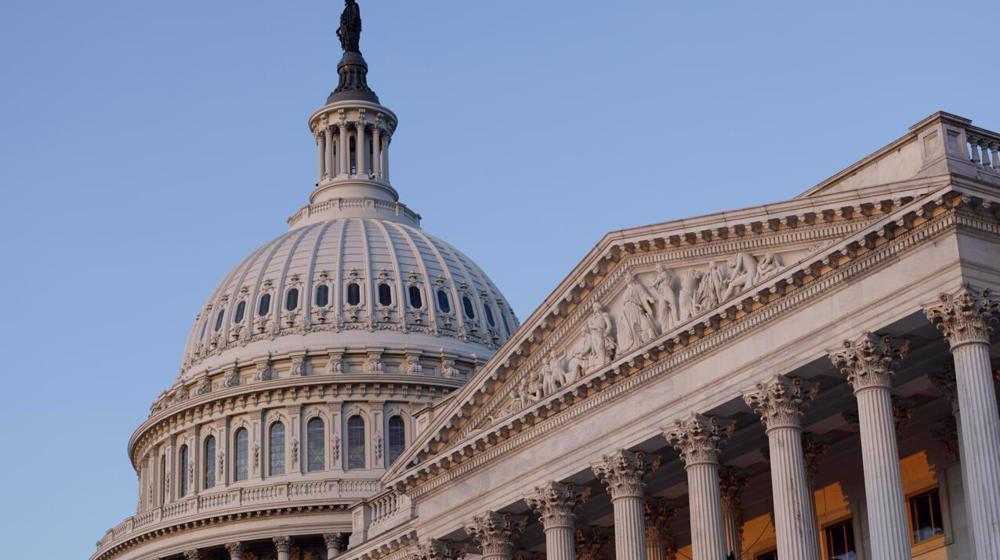Trump says will sign police reform executive order
US President Donald Trump says he will sign an executive order on police reform on Tuesday after weeks of protests over the brutal death in custody of an unarmed black man and widespread calls for action against such police behavior.
The announcement on Monday by Trump comes after the death of 47-year-old George Floyd in Minneapolis last month.
Speaking to reporters at a White House roundtable event, Trump said he believed the order would be “pretty comprehensive.”
“Basically, we’re going to be talking about things that we’ve been watching and seeing for the last month, and we’re going to have some solutions, some good solutions,” he said without providing further details.
By signing the order, a national certification system for law enforcement agencies and a database would be established to help better track excessive uses of force by police officers across the country.
Though the executive order is still being finalized, the key provisions in its current draft include modest directives with broad-based support aimed at encouraging higher standards among police departments. Meanwhile, Congress is working on legislation to address policing reform and racial injustice.
“The president has been listening to many people across the aisle and across the country when he is formulating these ideas, and he has a very large group of people helping him with that as well,” White House counselor Kellyanne Conway told Fox News.
“I think it won’t surprise you it will talk about the role of law enforcement, making sure that people understand the role is to keep their communities safe and their neighborhoods protected, and that we don’t want to cast aspersions over an entire industry,” Conway added.
Meanwhile, Ja'Ron Smith, a deputy assistant to Trump said Monday morning that the executive order aims to incentivize police departments in order to include mental health professionals as co-responders.
"Co-responders would allow for police to do their job but bring in social workers and experts that deal with mental health and deal with issues such as drug addiction or alcohol addiction or even other issues like homelessness," Smith said on Fox News Channel.
This also comes as Sen. Tim Scott (R-S.C.) has been leading the effort for Republicans in the Senate, while Democrats introduced a bill last week that would rein in police brutality. The bill would impose a federal ban on chokeholds, make it mandatory the use of body cameras, restrict the “qualified immunity” doctrine protecting police officers from lawsuits, and establish a national database that would reveal names of officers who have often resort to abuse, among other things.
Protests have been held across the US in response to the killing of Floyd, who died after a white police officer knelt on his neck for nearly nine minutes on May 25.
The United Nations Human Rights Council (UNHRC) is set to convene an emergency session to discuss US police brutality and racial discrimination in the wake of recent state-sponsored violence against people of color in the country.
The UNHRC announced in a statement that the 47-member body would debate “systemic racism, police brutality and violence against peaceful protests” in the United States on Wednesday.
VIDEO | Security officers injured, one person killed in Amman shooting
VIDEO | Press TV's news headlines
VIDEO | Palestinian women, life under Israeli violence
Hezbollah strikes Israeli bases with drones, missiles
Iran calls for action in defense of Palestinian women
VIDEO | Sydney protests demand action as Israel faces ICC warrant for war crimes
VIDEO | Arrest warrant for Israeli war criminals
Iran to host ‘important’ ECO foreign ministers' meeting in Mashhad












 This makes it easy to access the Press TV website
This makes it easy to access the Press TV website